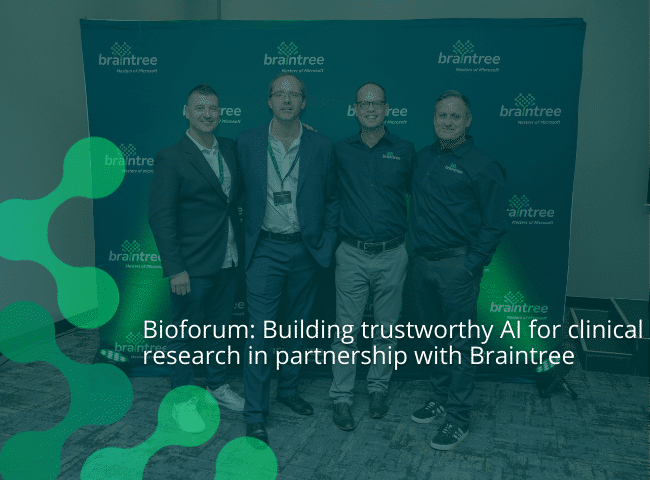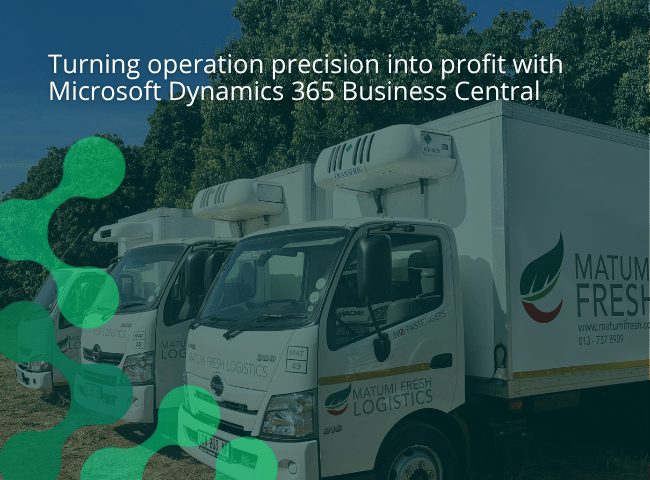Chris Badenhorst, Head of Azure Core Services at Braintree, discusses the importance of identifying a cloud strategy that will ensure artificial intelligence integration is more than just a nod to hype
The artificial intelligence (AI) rise to fame tracks as spectacularly as that of a freshly discovered celebrity. Appearing on every talk show and in every headline, the technology has, as McKinsey puts it, seen surging interesting since it burst into mainstream media early 2023. The technology remains in the media because it is relentlessly proving its value across multiple use cases and industries. As a study commissioned by Microsoft and undertaken by IDC found, AI has ‘demonstrable business value’ across key areas such as ‘employee experiences, customer engagement and internal business processes’.

The statistics are equally profound. AI is anticipated to add $10 trillion to the global gross domestic product by 2034, says the IDC survey, with 71% of respondents already using the tech and most seeing a return on their investment within just 14 months. Amazon predicts it is going to contribute around 600 billion Euros to the European economy by 2030. Then there are the statistics in Forbes – 64% of companies expect AI to increase productivity, 60% think it will improve customer relationships – and survey after statistic proving that it is exactly what the business needs to succeed amidst the crowd, noise and economic uncertainty.
The challenge really lies in ensuring that the AI promised by the numbers is the AI the business gets to use. It’s not a plug and play technology (none are) which means companies need to approach its integration with strategic caution. And the first question should be – what cloud strategy should companies be adopting to ensure their AI adoption is both a success and one that aligns with business objectives?

Value is found in ensuring cloud migration – something many companies are still coming to terms with – is for innovation. Migrate to innovate. This means weaving AI into the process so, at the end of the long hours of planning, migrating and managing cloud infrastructure, there is AI embedded within the business. Regardless of an organisation’s size, the end result needs to be one that stands firm under pressure from the business and stakeholders and allows for departments and teams to innovate at scale.
The challenge doesn’t lie in the fact that cloud is perfectly capable of bringing AI into the business, but in choosing the right approaches and products. Right now, every solution has AI attached to it. Everyone has put AI on the tail end of their offerings and now organisations without much experience in AI or how to apply it, are expected to know which application is the right fit for their purpose. The answer lies in two areas – business objectives and proven value.
Yes, AI can give you value but, as a recent Gartner study found, 49% of participants had difficulty estimating and demonstrating this value. And one of the core reasons behind this difficulty is the lack of a coherent strategy. Once the business understands that an innovation strategy needs to tie into the business strategy, they will immediately step on the road that will take them to the best possible ROI from their cloud and AI investments.
Once strategy is defined, the next step is to prioritise the type of AI. What solution will fit within your business? Is it easily adopted? Does it slip seamlessly into the gaps and cracks and empower employees to achieve those promised levels of productivity and customer engagement? Microsoft has got this right on multiple levels.
The Azure framework can be customised to fit, regardless of sector or goals, and it comes with AI woven into the very fabric of its capabilities. Microsoft Copilot is as effortlessly accessible as a drink from the office watercooler and it allows for companies to step right into the innovation. The learning curve and integration challenges are effectively removed.
Azure is a smart approach to a cloud strategy that makes it easy for companies to adopt AI. It is ultimately putting AI within the heart of the business in ways that are practical and relevant..
Practical AI that puts ROI right on the table is found in smart cloud approaches that prioritise strategy. It is also easy found with a partner that understands Azure, AI, cloud frameworks and how to shape these capabilities to fit your unique business model.








